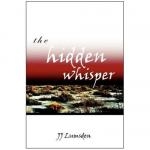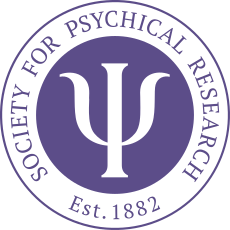
Here’s a novel novel. J. J. Lumsden has written a story about a parapsychologist investigating an apparent poltergeist, using the plotline as a vehicle to provide serious information, in the form of endnotes, on psi research. The result is entertaining and instructive in equal measure, and will appeal to SPR members as well as the general reader who would like to know more about parapsychology.
Dr Luke Jackson, a professional parapsychologist engaged in pre-sentiment research (that’s endnote 51), is headed to a retirement community just outside Tucson, Arizona, for a flying visit to his grandparents en route to a conference in Hawaii – a choice of destination clearly designed to stimulate numbers applying for post-graduate courses in the subject. Unfortunately, just before he arrives his grandfather dies, causing him to extend his stay in Arizona, and while there he is asked to help out with a problem which is making a local couple consider leaving their home.
They are plagued by spooky manifestations such as strange Indian speech coming from downstairs at night when they are the only ones in the house, writing in the bathroom which appears and disappears, a candle that mysteriously burns down with no human agency, and so on. At a loss what to do, they ask Luke for his advice, so he sets about determining whether the phenomena have a paranormal explanation or not. The plot that follows, although coming to a tidier conclusion than much spontaneous case research, does give an idea of the sorts of problems that the investigator faces when probing what is really going on in a given situation and trying to make sense of what witnesses say.
The result is thoroughly enjoyable, but a problem with interweaving a detective storyline with information on parapsychology is that it affects the flow, made more noticeable by the fast pace of the procedural element. Every now and again the momentum slackens for a Socratic exchange in which a character will ask Luke a question, such as, “Tell me Luke, exactly what does a parapsychologist do?”, or “Spontaneous experiences are common?”, or “So what about healing?” to which he replies with a mini-lecture on the topic.
One learns to recognise the signs, and tends to think, “ah, the science bit, concentrate,” but the extensive supplementary material that elaborates these points is well worth the effort of working through and Lumsden has taken pains to make quite technical information accessible to the non-specialist. Areas covered as the narrative unfolds include testing various aspects of psi in the laboratory and possible explanations, theories of poltergeists, Electronic Voice Phenomena, Near Death Experiences, issues of fraud, and methods used by pseudo-psychics.
Lumsden also takes the opportunity to scrutinise methods used by sceptics, noting where they have been unfairly applied to parapsychology. The book concludes with a lengthy bibliography to enable the reader to follow up particular areas of interest. One puzzle that remains is why he chose to call a supporting character Chet Baker, with not a trumpet in sight.
Lumsden is apparently going to produce a sequel, and there are hooks in The Hidden Whisper that could be expanded. It would be nice to see a series, with educational underpinnings to page-turning fiction, as Dr Jackson examines things that go bump, or perhaps just beep, though whether Lumsden will generate as much interest from descriptions of Luke’s pre-sentiment research as he does from the Tucson Poltergeist is another matter.

